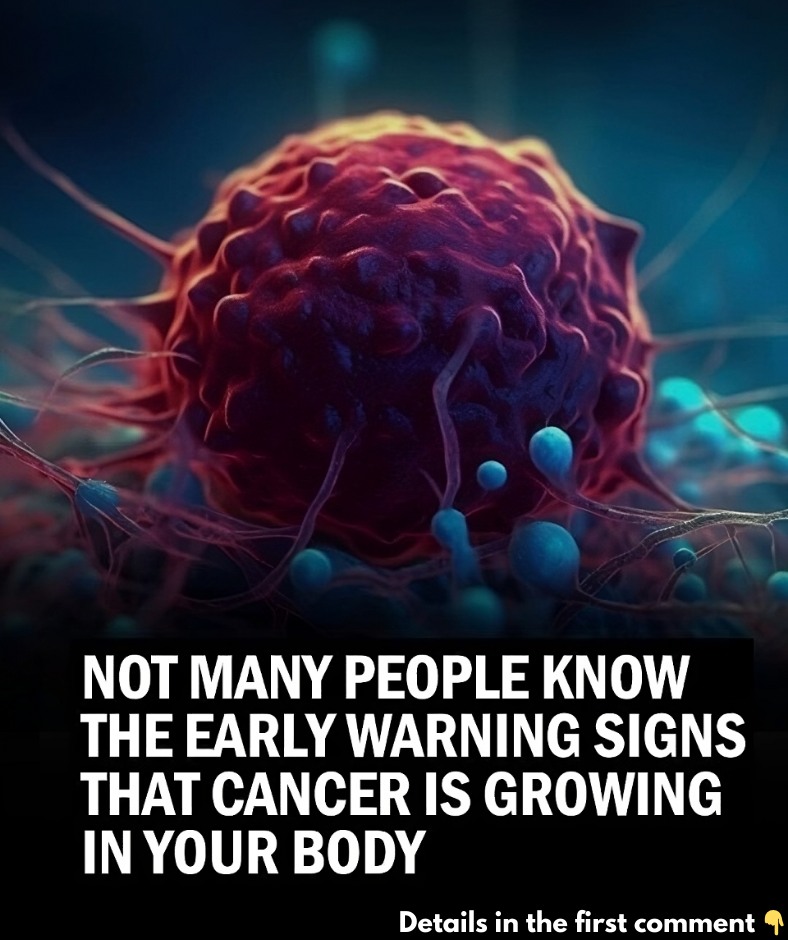Our bodies possess an incredible ability to communicate with us, particularly when something isn’t quite right. For severe illnesses like cancer, being vigilant about subtle changes can be life-saving. Early detection significantly improves treatment outcomes, making it essential to recognize potential warning signs. If you notice any of the following 20 symptoms, seeking professional medical advice is a wise step toward protecting your health.

Cancer does not always announce itself with obvious signs. Instead, it often manifests through subtle, indirect symptoms that can be easily overlooked or mistaken for less serious conditions. Awareness of these warning signs can empower you to take action early, potentially improving your prognosis.
Wheezing or Shortness of Breath
Breathing difficulties, such as sudden or persistent shortness of breath, are common early indicators of lung cancer. If this symptom arises without a clear cause, consulting a doctor is crucial.
Frequent Fevers or Infections
Recurring fevers or infections could signal leukemia, a blood cancer that weakens your immune system. This increased susceptibility to illness should not be ignored.
Difficulty Swallowing
Having trouble swallowing, particularly if it persists, might point to throat cancer or even lung cancer. Medical evaluation is essential to rule out serious concerns.
Unexplained Weakness and Fatigue
Fatigue is a nonspecific symptom, but if it is extreme and lacks an obvious cause, it could be associated with cancer. Persistent tiredness that doesn’t improve with rest warrants investigation.
Feeling Full Quickly or Losing Appetite
A sudden lack of appetite or feeling full after eating very little can indicate ovarian cancer. If these symptoms persist, seeking professional advice is vital.
Cancer also manifests through visible bodily changes, offering physical clues that should not be overlooked. Recognizing these signs can lead to earlier detection and more effective treatment.
Rectal Bleeding or Blood in Stool
Blood in the stool is often an early sign of colorectal cancer. Never dismiss this symptom; immediate medical attention is necessary.
Lumps in the Neck, Armpit, or Groin
Swollen lymph nodes, particularly in these areas, could indicate changes in your lymphatic system, which may be linked to cancer.
Excessive Bruising or Bleeding
If you bruise easily or experience unexplained bleeding, it could be a symptom of leukemia, which disrupts blood clotting.
Persistent Bloating or Abdominal Weight Gain
Ongoing bloating without an obvious cause may point to ovarian cancer. Persistent bloating is a red flag that should not be ignored.
Unexplained Weight Loss
Losing a significant amount of weight unexpectedly can signal cancers such as colon or stomach cancer.
Sometimes, skin changes provide the first visible signs of cancer. Paying attention to what your skin is telling you can uncover underlying health issues.
Red, Sore, or Swollen Breast
Inflammatory breast cancer often presents with redness, swelling, or inverted nipples. Prompt evaluation of these symptoms is critical.
Swelling or Puffiness in the Face
Facial swelling may be linked to lung cancer, caused by blocked blood vessels in the chest. If this occurs, seek medical attention.
Sores or Lumps on the Skin That Don’t Heal
Persistent sores or non-healing skin lumps could indicate skin cancer. Consulting a dermatologist promptly is essential.
Changes in Nail Color or Shape
Dark lines under the nails might signal skin cancer, while pale nails could indicate liver cancer. Clubbing of the nails may be a sign of lung cancer.
While pain is often attributed to less serious conditions, it can sometimes be an indicator of cancer. Persistent, unexplained pain should always be taken seriously.
Painful Periods or Unusual Bleeding
Heavy or irregular bleeding might be a sign of uterine or endometrial cancer. A transvaginal ultrasound can provide clarity.
Chronic Cough or Chest Pain
A lingering cough or chest pain radiating to the shoulder or arms can indicate lung cancer or leukemia. Even minor persistent symptoms warrant evaluation.
Abdominal or Pelvic Pain
Pelvic pain might point to ovarian cancer, while leukemia can cause abdominal pain due to an enlarged spleen. Persistent discomfort in these areas should be discussed with a healthcare provider.
Back Pain or Pain on the Right Side
Pain in the upper right side of your back could be caused by liver cancer, while breast cancer may lead to pain in the spine or ribs. If back pain remains unexplained, seek medical advice.
Frequent Stomach Cramps or Discomfort
Persistent stomach cramps or digestive problems may indicate colorectal cancer. Consulting a doctor is critical if these symptoms persist.
Reducing your risk of cancer involves proactive lifestyle choices and staying vigilant about your health. Here are simple yet effective steps to consider:
Eat a Healthy Diet
Incorporate fruits, vegetables, and whole grains into your meals while limiting processed foods and sugar. These changes promote overall well-being.
Exercise Regularly
Staying active helps regulate insulin levels and boosts the immune system, reducing the risk of certain cancers.
Limit Toxin Exposure
Minimize contact with environmental toxins, such as pesticides and harmful chemicals. Opt for natural products and consider using air purifiers.
Get Routine Screenings
Regular check-ups are vital for detecting cancer early, especially if you are at higher risk. Discuss screening options with your doctor.
Recognizing early signs of cancer can make a significant difference in treatment success. While not every symptom means cancer, staying attuned to bodily changes and consulting a healthcare professional promptly can lead to early diagnosis. Early detection increases the likelihood of successful treatment, so prioritize your health, make lifestyle adjustments, and never hesitate to seek medical advice for unusual symptoms.





